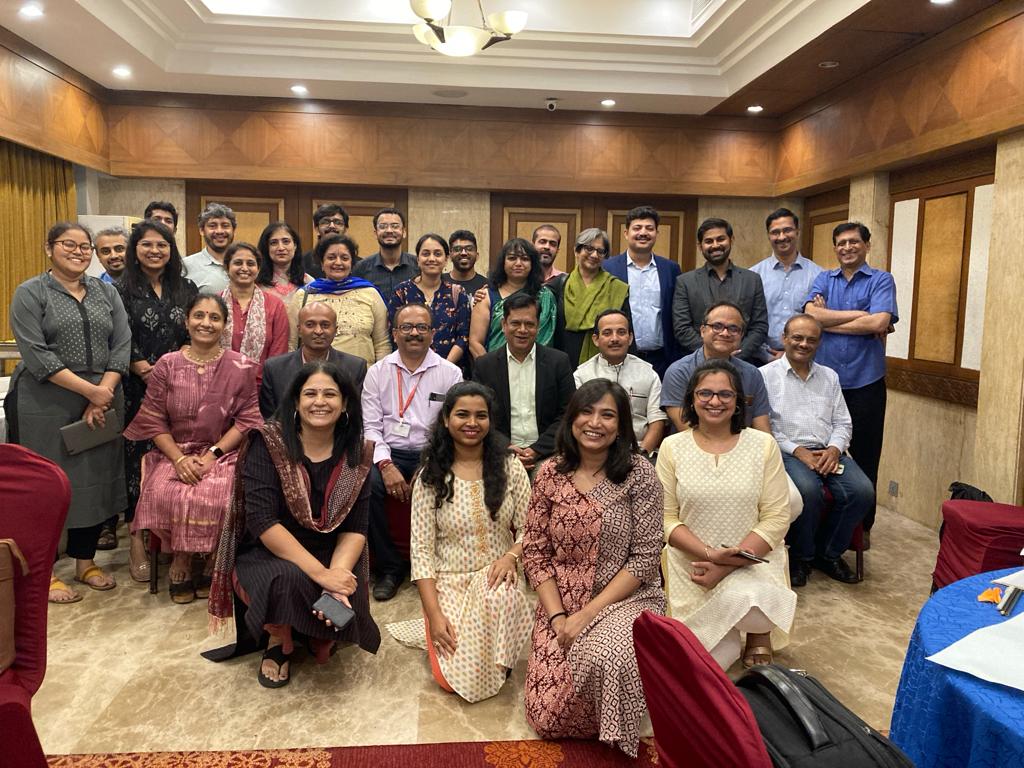Next Generation Co-production Funding Project

- Tags
- Blog
Supporting Research on Marginalised Futures of Sustainable Cooling
Sumedha Basu, from the Sustainability Research Institute in the School of Earth and Environment successfully secured funding from the first round of LSSI Next Generation Co-production Impact Scheme. This scheme is available to cover the costs of projects using experimental approaches and methodologies for participatory research, the development of materials for research skills and methodologies that are related to participatory research for researchers/academics and/or other knowledge holders or the development of case studies that evidence the impact of participatory research.
An EPSRC funded 5-year project Co-creating Visions and Pathways for Integrated Urban Heat Systems (https://urbanheatsystems.leeds.ac.uk/) is currently being implemented by Dr Catherine Bale (PI) and Dr Sumedha Basu (Research Fellow). As part of this project, Sumedha conducted fieldwork in the city of Pune (India) that comprised multiple stakeholder interviews and participatory workshops in accordance with the methodological approach adopted in this project (Basu and Bale, 2023). The data collected during this fieldwork indicated the presence of traditional architectural practices of shading and ventilation in the city that can aid in long-term sustainable cooling if replicated.
Further, the stakeholder engagement conducted (limited by timeframe, resources and original focus of the project) suffered from a lack of representation from marginalised and low-income communities where demand for affordable cooling is the highest in the city. During the fieldwork, the Pune City government also revealed that it is in the process of preparing a climate plan for the city and specifically requested this team for research insights on sustainable cooling that can shape the city’s climate policy. Both these research gaps and the said policy appetite have emerged organically during the participatory data collection approach.
The Co-production Research Toolkit has been an eye-opener for me in viewing stakeholders through a new lens of a knowledge co-producer. The toolkit touches upon multiple aspects of co-production, making it an excellent primer for any co-production methods practitioner
Dr Sumedha Basu (SRI, University of Leeds)
The funding will facilitate three medium-scale workshops to bring together representatives from these communities to discuss the various facets of traditional and low-cost cooling. The key points of the joint discussions will be captured in the form of two policy briefs and submitted to the local city government. A strategy for future research in these areas will also be co-developed in discussion with BNCA (An architecture college for women - https://bnca.ac.in/) and Basera (non-academic partner -local NGO working with marginalised communities).
What is exciting about this project is that knowledge creation for sustainable and affordable cooling will have the marginalised communities themselves become stakeholders in the policy framework and their voices will be heard along with other stakeholders
Namrata Dhamankar (BNCA) on Co-production
The project is expected to contribute towards strengthening the academic career of PDRA Dr Sumedha Basu in that it will help her learn the process of academic/research fundraising as well as project planning and execution. Sumedha will also develop further skills in implementing the various facets of co-production methods and approaches under the mentorship assigned by LSSI, building on her experience of working with stakeholders in Pune and with parliamentarians in South Asia through Climate Parliament. The team will also explore the opportunities to mentor undergraduate and postgraduate students in BNCA and co-author research papers resulting from this project.
We look forward to being able to provide updates on the project as it develops.
